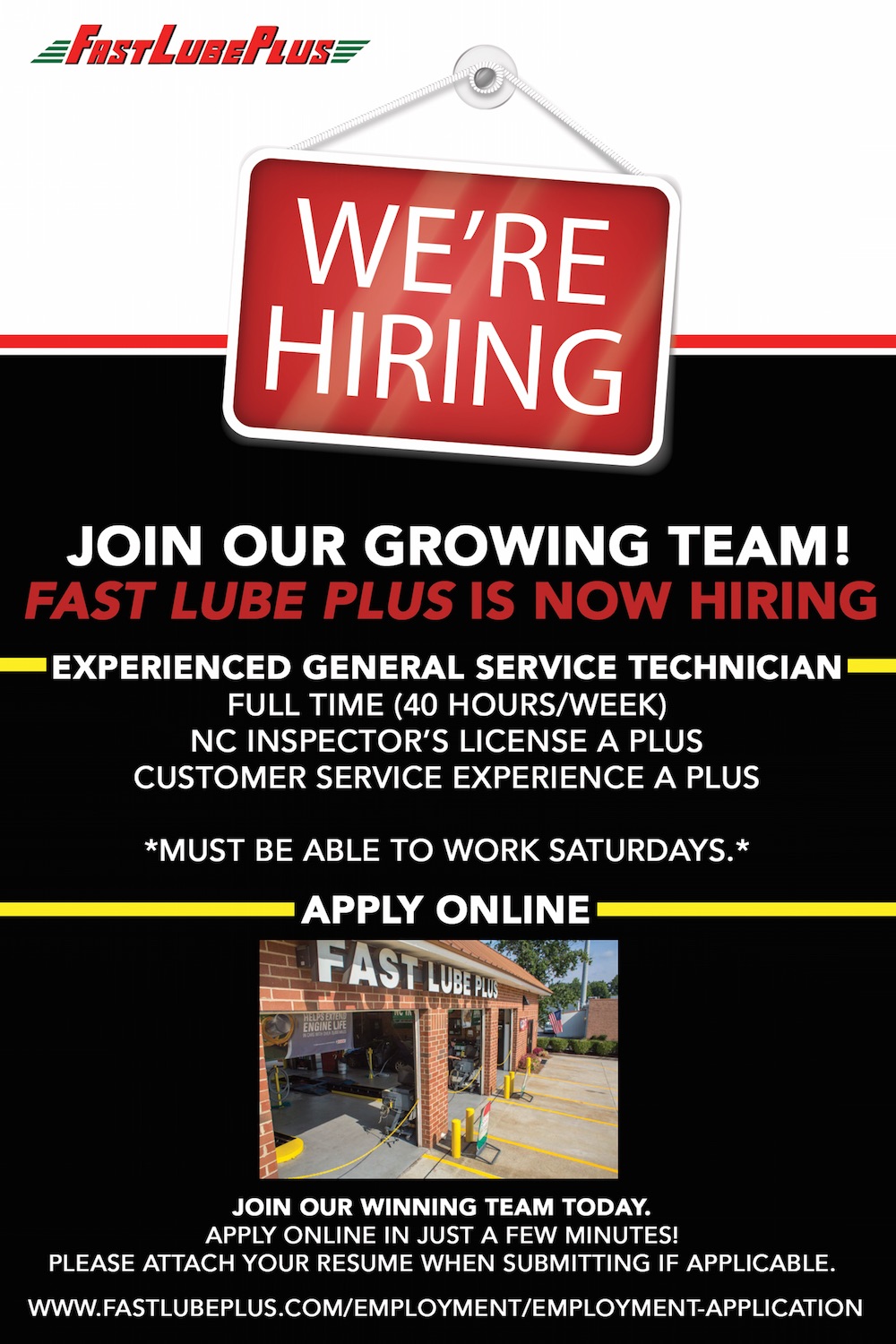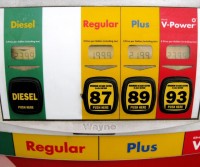
Ask your average American about a diesel, and they’ll likely say something about big trucks or black smoke. Ask the average European, and they’ll wonder why Americans don’t put diesels in all of their cars. So who has the right idea?
Both, as it turns out! Geographical preferences boil down to the price of fuel, and both engine types have important advantages and disadvantages.
Ignition
Engines make their power from igniting fuel. Gas and diesel engines differ in how they ignite it.
Gasoline engines use compression and spark plugs. In your engine, gas and air swirl together to create a flammable mixture. The engine’s pistons compress that mixture, which is then ignited by a short burst of electricity from a spark plug.
Diesel engines skip the plug. Instead, they compress that air-fuel mixture so highly that it explodes without spark. These huge forces mean diesel engines are built stronger and last longer…but at a higher cost.
Power
The fastest cars in the world use gasoline engines, and the biggest trucks use diesel engines. They’re powerful, but in different ways. It comes down to a question of horsepower vs. torque.
Torque is low-end, get up and go power, the force that squeals tires and slams you against the seat. Diesels produce way more torque than gas engines, making them ideal for low-speed hauling. Torque usually drops off as an engine moves faster, making it hard to maintain at high speeds.
If torque is what gets a car going, horsepower is what keeps it going. It gradually increases as an engine moves faster, which is why racecars produce low torque and extreme horsepower. This predictability is also more user-friendly than torque. Gas engines produce more horsepower than diesels.
Efficiency
Though gas technology is improving, diesel engines are nearly always more efficient. For instance, the diesel VW Golf gets 7 more mpg on the highway than the gas version. Gas engines also rely on complex computers for their spark component, something that diesels don’t need.
However, diesel engines do create more noise, noise that a muffler alone can’t remove. Their clacking sound is unmistakable, and may bother some people.
Does your gas or diesel-powered car or truck need maintenance? Fast Lube Plus can perform the oil change, diagnostic, or spark plug service you need. Contact us today!
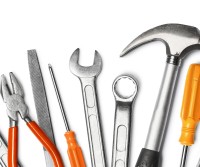
“A man is only as good as his tools.”
Here at Fast Lube Plus we firmly believe that preventative maintenance is the key to keeping your vehicle running at peak performance, but we also are realistic in the fact that sometimes things beyond our control can occur, possibly putting you in a position where a quick fix is necessary. The purpose of this post is to help put together a list of some very useful tools to have around should you ever find yourself stranded.
Having access to a few essential tools can mean the difference between towing to a shop or continuing down the road on your own accord. It should be noted that you should only ever work within your comfort level when having to fix your car in a pinch. So if you are comfortable enough to take the reigns in a pinch, here are a few good suggestions to keep tucked away in your vehicle for the occasion.
- Flashlight – This is perhaps the most essential piece of equipment to keep in your vehicle at all times whether you plan on working on it yourself or not. Always keep a flashlight handy, and test regularly to make sure the batteries are charged.
- Jack / Lug Wrench – Your spare tire is useless without these 2 pieces of equipment. Make sure you know the jackpoints on your vehicle, and a handy trick is to loosen the lugs (in a star pattern) while the tire is still touching the ground.
- Screwdrivers – You cannot do any repair without screwdrivers. It would be wise to keep a couple of these tools with different head shapes and sizes. They are necessary in loosening and tightening the different screws in different parts of your car.
- Vise-Grip Pliers – These lockable pliers are worth their weight in gold. They are most useful as a locking wrench to help loosen / tighten tough bolts or nuts.
- Adjustable Wrench – This handy tool adjusts to fit many sizes of bolts and nuts, and with your Vise-Grip Pliers can help tighten free spinning nuts and bolts.
- Tire Gauge – Used to check the pressure of your tires (including your spare), this should be used monthly to keep tire pressure maintained at the correct levels to prevent unnecessary flats.
Feel free to consult with your Fast Lube Plus technician on your next visit for a demonstration of how to use each of these!
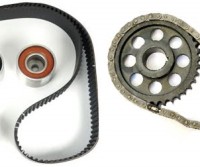
Most drivers ignore their car’s tachometer. It’s the big gauge next to your speedometer that shows your engine RPM, or rotations per minute.
While the device itself is a bit boring, it symbolizes something amazing. Those “rotations” are heavy, metal engine parts flying back and forth against exploding gasoline. When you’re hitting the on-ramp, that happens four thousand times per minute!
That speeding metal is orchestrated by a timing belt or chain, expertly engineered to keep those parts separated. If it breaks, those parts collide, and it’s not pretty.
Maintenance for belts and chains differs significantly! It’s important to know what your car has so you can avoid disaster.
Timing Belt
A timing belt is a ribbed, rubber belt that slides into gear grooves on one side of your engine. You usually can’t see it, as it’s covered to protect it from the elements.
Timing belts have many disadvantages. For one, their flexible material will eventually break. Furthermore, examining the belt requires removing a ton of other parts, so you can’t just chance it. Manufacturers have their own recommended replacement times, generally 60,000 – 100,000 miles.
However, timing belts have some pluses. They’re lighter and quieter, and much cheaper to manufacture. This makes them popular on both economy cars and high-performance sports cars.
Replacing the timing belt is a complex, lengthy procedure that can be quite expensive. Since it connects to several other hard-to-reach parts – particularly your water pump – your mechanic will usually replace multiple parts during the job. These higher upfront costs will save you money down the line.
Timing Chain
The timing chain is increasing in popularity, reaching even economy cars for Ford, Volkswagen, and Mazda. Its metal design means it rarely, if ever, breaks. Chains can withstand heavy duty or high-power applications, especially trucks. New technology means that chains can work in small cars with no performance or fuel economy loss.
However, timing chains aren’t perfect. They sometimes warp with time, requiring replacement. Furthermore, some manufacturers use plastic guides to keep the chain stable as it moves. These guides can wear over time and have disastrous consequences if they wear out. This was a particularly notable problem on certain Audis.
If you’re buying a new car, ask about its timing method! This will help you prepare for maintenance and keep your car running longer.
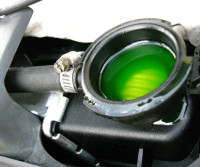
Besides your brake pads, fluids are the majority of the most important maintenance to your vehicle to keep on the road for several hundred thousand miles. Friction and heat are enormous by-products of the power your vehicle creates to shuttle us around, and without these fluids your vehicle will simply not work. Keeping these fluids fresh and full can make the difference between simple maintenance and costly repairs.
Which fluids should you check? Here are five of your engine’s fluids you should make a habit of checking:
ENGINE OIL
- Check your oil once a month.
- Check out your owner’s manual to know when to have the oil replaced. Timeframes depend on the car.
- Typical numbers are every 3,000 miles for newer engines up to 7,000 miles for high mileage. Higher mileage engines can go longer due to the parts being “worn in”, causing less friction meaning less lubrication is necessary.
TRANSMISSION FLUID
- Transmission fluid should be checked monthly.
- It should be replaced every 50,000 to 100,000 miles.
- This is a job for FastLube Plus or another professional, as many times gaskets must be replaced as well.
COOLANT
- Coolant should be checked twice yearly, before summer and before winter.
- It needs to be replaced every 2 to 3 years.
- Low coolant can lead to blown radiators when air (which can expand) enters the cooling system.
BRAKE FLUID
- You should check this once a month.
- Brake fluid needs to be replaced every 2 years.
POWER STEERING FLUID
- This fluid should be checked once a month.
- Check your owner’s manual for information of replacing power steering fluid. It greatly depends on the car.
The team at FastLube Plus is always happy to answer any of your questions. We can also check your engine’s fluids and replace any necessary fluids. A well-maintained car is synonymous with safe car. To schedule an appointment please call us at919.387.9996 to find your nearest FastLube Plus location.
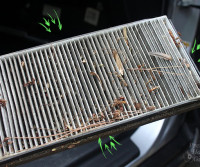
Your body filters itself in various ways: your kidneys, bladder, pancreas, and more. And just as your car’s engine is its heart, it usually gets the bulk of your attention.
But when those other organs act up, you start to notice. Previously unseen assistants start making themselves known in the worst way. Your cars filters can give you the same headaches, and it pays to replace them sooner rather than later! Here are the major filters on most cars, what they do, and how often they should be replaced.
Air Filter
Your air filter is your car’s mouth. As your engine breathes air to push through, the filter gets rid of pine needles, dead bugs, dust, and other fun stuff that could hamper that process. If it’s clogged, your engine will feel sluggish or even have trouble starting.
Air filter replacement guidelines vary, but a general rule is every 25,000 – 35,000 miles.
Oil Filter
Oil lubricates all the moving parts of your engine. Since your engine spends most of its time moving, oil gets a lot of use. It also picks up certain byproducts of your engine: dirt, grime, even microscopic metal shavings. The filter keeps those nasties in their own little prison.
Your oil filter should be changed every time you change your oil. No exceptions.
Fuel Filter
Gasoline can be surprisingly nasty, even after being refined. Factor in one too many poorly-cleaned gas pumps, age, and an emergency fill from the gas can in the shed, and things can get even nastier.
Manufacturers put the fuel filter in all kinds of places. Most are on the line from your gas tank (in the back) to your engine (usually in the front.) These can and should be replaced a few times in your car’s life, especially on older vehicles. Some cars have the filter directly in the tank, and it may never need replacement.
Cabin Air Filter
Many cars actually don’t filter their most important air: what passengers breathe! However, cabin air filters for your AC/heat vents are becoming increasingly common. That air comes from the outside. All those construction zones, gravel roads, and rainstorms you drive through? Your cabin air filter protects you from them. Replace it around once per year.
Transmission Filter
Your car’s transmission connects your engine to your tires. It works hard, and the gears inside gradually wear down. Their very tiny metal shavings can gum up the works. Transmission fluid catches those and redirect them to your transmission filter.
Transmission filters vary widely between types of transmissions. Many stickshifts don’t need one. Conventional automatic transmissions almost always have one, and it should be changed every 30,000 – 40,000 miles with the fluid.
Some new cars, especially high-end ones, have fancy automated manual or dual-clutch transmissions. The filters in these are much more sensitive, and usually need changing every 40,000 – 60,000 miles.
Always consult your owner’s manual for proper filter change intervals. And next time you stop by Fast Lube Plus, have us check your filters! Your car will thank you for it.
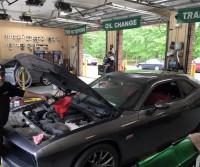
Regardless of its brand or age, every car needs regular tune-ups. Their behind-the-scenes nature means some drivers don’t see their value, but investing in preventative measures and routine checkups can save you future headaches! Here’s what goes into an average tune-up.
General Tune-up Procedures
Tune-ups can vary depending on the car and who is performing the tune-up. Generally, a tune-up consists of checking the engine for parts that need cleaning, fixing, or replacing. Common areas under inspection include filters, spark plugs, belts and hoses, car fluids, rotors, and distributor caps. Many of these only require a visual inspection or a simple test.
While some of these checks can be done at home, having professionals give your car a comprehensive tune-up guarantees that the engine is fully examined.
At Fast Lube Plus, tune-ups can also include analyzing exhaust emissions, adjusting ignition timing and idle speed control, and a thorough maintenance inspection.
Filters and Spark Plugs
Though tune-ups come in a variety of flavors, they almost always include your filters and spark plugs.
Fuel filters, oil filters, PCV valves (which help ventilate the engine), and air filters all help keep your engine clean. The filters catch contamination. Over time, clogs can develop as unclean fluids, air, dust, and other impurities get caught in the filters. If unchecked, dirty filters can lead to higher oil pressure, fuel pump failure, and many other expensive and annoying problems.
Spark plugs are the tiny electrodes that handle the “combustion” part of an internal combustion engine. They are subject to wear over time, as the metal is constantly under high pressure and temperatures. Rough idling and hard starts are often due to worn spark plugs. Their accompanying wires, rotors, and distributor caps can also wear out, and a good tune-up includes their inspection.
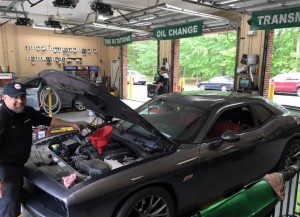 When to Get a Tune-up
When to Get a Tune-up
Though tune-ups are important, most cars don’t require them as often as they require other maintenance jobs, like oil changes. If you have a car from the 1970s or earlier, you probably should get a tune-up every 10,000 miles. Most newer cars should be checked every 30,000 – 50,000 miles or so, despite some manufacturers recommending a 100,000 mile interval.
Routine tune-ups are crucial to maintaining your engine’s performance and longevity. Next time you visit Fast Lube Plus, ask one of our experienced technicians about our tune-up services.
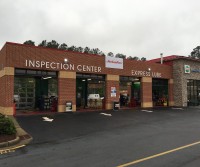
Fast Lube Plus is proud to have served Wake and Johnston counties for 15+ years. As the area has grown, so have we. And our next step has taken us further south into Wake County, into the town of Fuquay-Varina. Our newest store there is now open for business!
A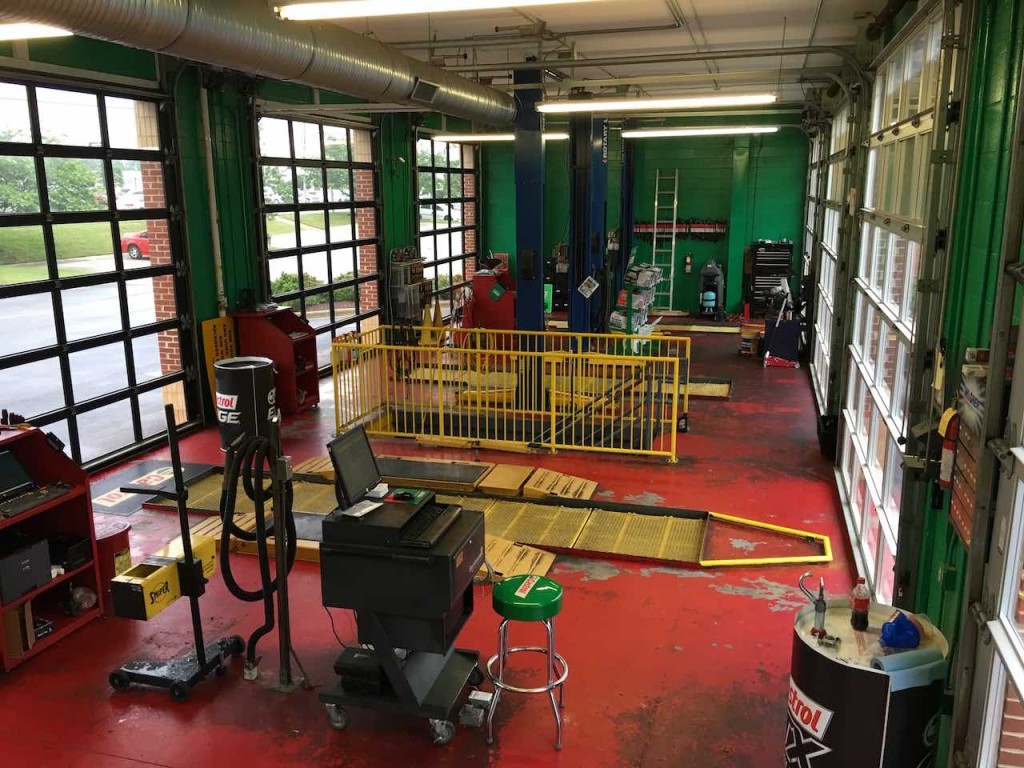 bout the Location
bout the Location
Our Fuquay-Varina store joins our existing locations in Apex, Cary, Morrisville, Holly Springs, and Garner. The shop sits in the heart of town at 1110 North Main Street, across from Walmart. Its proximity to both historic neighborhoods and new developments mean that we can serve as many residents of the city as possible. Main Street’s connection to US 401 also means that commuters can easily stop by on their way home from downtown or the RTP.
About Us
Fast Lube Plus is a regionally-based, family-owned comprehensive automotive maintenance provider. Operated by a father and son team, our owners Tom and Joe work alongside technicians in each of our locations. Our regular customers know us by name, and soon you will too.
Fast Lube Plus’ services run the gamut from routine oil changes and maintenance to diagnostics, belt repairs, tune-ups, and brakes. We are also a fully certified North Carolina Emissions Inspection station. We treat even routine maintenance with the same care and respect of the most complex job.
About Fuquay-Varina
Fuquay-Varina and Southern Wake County are in a unique position. These historically rural communities have bared the brunt of Raleigh’s explosive growth, with Fuquay-Varina doubling in population just since 2000. Much of this is due to the area’s tech industry, particularly in the Research Triangle Park.
With our experience in Raleigh’s other booming suburbs, we know the unique needs of a community on the rise. We understand how to respect old residents while adapting to the needs of transplants. And while we find our daily operations serve a valuable purpose – keeping people on the move – we also respect our place in our communities. Fast Lube Plus gives back through work with the Holly Springs Food Bank, the US Veteran Corps of Cary, and other local charities.
With this new expansion in Fuquay-Varina, we hope to keep a new community on the move!
One advantage of a used car is that you can learn from other owners about reliability. Even some of most popular used cars out there have small issues you should know about. Today we’re looking at four of the most popular used cars in America, and issues you should watch out for. If you need repairs or preventative maintenance, contact Fast Lube Plus today so we can help you!
Ford Escape
The Ford Escape (and its platform-mate, the Mazda Tribute) are popular choices for their interior room and car-like driving experience. Their biggest issue is shuddering above 40mph, almost always caused by poor transmission maintenance. If you don’t have this problem yet and have never changed your transmission fluid, now is the time!
The platform has a smattering of other, smaller problems. A dirty idle air control valve can cause sputtering in 2001-2006 models, and in irregularly shaped coolant tank can cause the warning light to come on even when you aren’t low. Have a shop check your wheel bearings too, as they’re an important safety feature that Escapes are known to wear out.
Chevrolet Impala
A popular fleet vehicle, Chevrolet Impalas are easy to buy used. Their prices are low and they are generally reliable.
2000-2005 models have a particularly annoying issue with servos in the gauge cluster. These little gizmos can die early, causing inaccurate readings or jumpy needles. They were also the subject of a class action settlement regarding an intake manifold gasket.
Newer models (2006-2013) often experience failed rear door locks. This is due to a poorly made actuator. Be prepared for this one, as the part can be pretty expensive.
Honda Accord
Hondas have a reputation for reliability, and rightfully so. However, they put out some unfortunately bad automatic transmissions in the early 2000s. Some of these ended up in the Accord, and are particularly notorious on the more powerful V6 model. If you haven’t changed your transmission fluid yet, make sure you do so as soon as possible. This problem is most noticeable before model year 2004.
You can also expect an oxygen sensor failure around 80,000 miles, and new spark plugs around 110,000. Both are relatively minor repairs.
Ford F-150
The F-150 has been the best-selling new vehicle in America year after year, and it maintains dominance in the used market. The trucks are available in a wide array of configurations for just about anyone’s needs.
They’re pretty solid trucks, with a few notable exceptions. The 2004 – 2008 years, popular on the used market, may exhibit an ugly idling sound. This issue only applies to the 5.4L V8, and is caused by wearing cam phasers. While your engine is safe, the noise will only get worse over time, so you should fix it.
We’re hiring for a variety of positions at our 5 Fast Lube Plus locations in the Triangle. See the flyer below for more details and click the flyer to apply today!
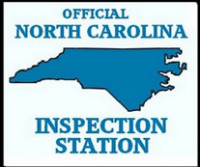
Your NC State Inspection can seem a bit…obtuse. If your car is running fine – especially if it’s brand new – it might seem like a waste of time for it to be inspected. This is especially true because it’s just that: an inspection! Nothing actually changes about your car afterwards.
However, a state inspection is actually a complex process requiring advanced automotive knowledge and training. The process is subject to strict legal regulation, and shops like Fast Lube Plus must be familiar with the regulation to perform inspection.
There’s more to your inspection than just a glance.
Safety vs. Emissions Inspection
North Carolina has two types of vehicle inspections: safety and emissions.
Safety inspections are required everywhere in the state. They focus primarily on the physical aspects of your car: brakes, tires, seatbelts, headlights, and anything else that could make your car dangerous for public operation.
Emissions tests are a bit different. Your car releases a certain amount of harmful greenhouse gases, the limits of which are mandated by the federal government. Because emissions are most concentrated in cities, emissions tests are only required in the state’s 48 most populous counties. Naturally, most of the Triangle falls in that category.
Both inspections have some minimum requirements. For instance, cars made before 1996 don’t have the in-car computers required for emissions testing. Cars older than 35 years also do not require safety inspections. This might sound dangerous, but most cars that old are kept as antiques or showpieces.
Station Qualifications
Becoming authorized to inspect a car is a lot like learning to drive one. It starts with an eight-hour class that can be taken at a community college, followed by a written exam. A local inspector or auditor then administers a live inspection test.
Inspectors must also renew their licenses. Safety inspection licenses must be renewed every four years. Emissions inspections are even more stringent, with an additional class and test and a two-year renewal period.
How We Compare to Other States
State inspection laws vary dramatically, but most share North Carolina’s policy of an annual safety and emissions inspection. However, some states are quite different.
- California: new cars sold in California actually follow an entirely different emissions standard, one much tougher than the federal requirements. They also require emissions inspections for all cars made after 1975. This is due to Callifornia’s extremely dense urban areas.
- Georgia: only cars in and around Atlanta require emissions testing.
- Nevada: only in Las Vegas and Reno, likely because the rest of the state is quite empty.
- Alaska, Arkansas, Florida, Iowa, Kentucky, Michigan, Minnesota, Mississippi, Montana, North and South Dakota, and South Carolina: no inspections of any kind!

